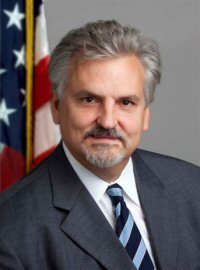Drilling, STDs, and Mike Sturla: The Week That Was
-
Scott Detrow
Missed this week’s top energy story? Confused by headlines about drilling and sexually transmitted diseases?
QUICK RECAP: On Monday, Capitolwire reported Department of Community and Economic Development Secretary Alan Walker is pushing for expanded drilling in state forests. Walker said the royalties would bring in billions, “solve just about every economic problem we have.”
This, of course, ticked off various environmental groups. The suggestion also infuriated House Democrat Mike Sturla, who questioned whether natural gas drilling has any upside at all. “[A]side from building roads so their trucks can get to drill sites and doing a little stream work to mitigate damage from their road building, exactly what are all those things the drillers are doing for the local communities?” he wrote in an email. “Patronizing the bars at night? Driving up the cost of rental housing? Spreading sexually transmitted disease amongst the womenfolk?”
THE CLAIM: The next day, Sturla apologized for his terminology, but stuck by his basic argument. STDs are up in drilling communities. He pointed to a presentation Troy Community Hospital gave to Governor Corbett’s Marcellus Shale Advisory Commission, which made that claim.”I don’t make this stuff up,” he said. “Should we not have drilling in the state because of that? No, but it’s one of those impacts that we need to deal with. In the Marcellus Shale Commission report, it says we should deal with it.”
But the hospital’s administrator told StateImpact she was basing the statement on anecdotal evidence, and didn’t have hard numbers.
THE FACTS: We then acquired a decade’s worth of STD statistics from the state Department of Health, and found…. no clear evidence of a spike in STD occurrences in drilling communities.
THE RESPONSE: Sturla responded to our report, writing, “this may serve to highlight the difficulty and interrogatories that local communities might encounter in the future if an impact fee is put in place and certain politicians do not agree with the local assessment/impact. It may also call into question the methodology of data collection and communication/cooperation with local health providers. In the end, this is one of a multitude of issues to be debated. I hope you scrutinize the claims of job creation as closely as you do STD’s.”
And now, you’re up to speed. And as part of the mission of this project, we will be scrutinizing all sorts of claims about how the drilling boon in Pennsylvania affects the people here, including jobs. If you have ideas for us or burning questions you’d like us to investigate, leave a comment, Tweet us, leave a message on our Facebook wall or email us anytime.

















